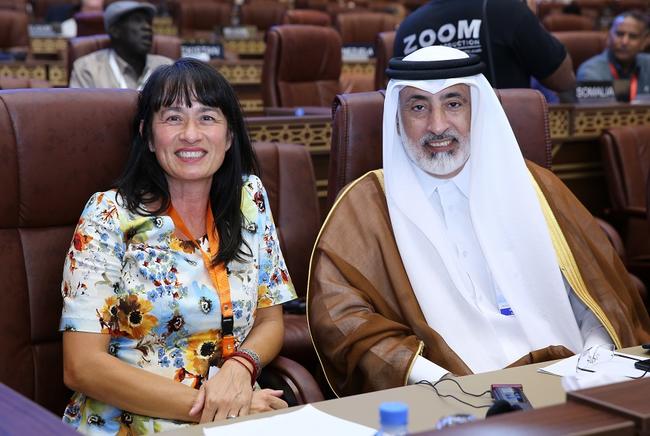- ImpactWe help parliaments to become greener and to implement the Paris agreement.We support democracy by strengthening parliamentsWe work to increase women’s representation in parliament and empower women MPs.We defend the human rights of parliamentarians and help them uphold the rights of all.We help parliaments fight terrorism, cyber warfare and the proliferation of weapons of mass destruction.We encourage youth participation in parliaments and empower young MPs.We support parliaments in implementing the SDGs with a particular focus on health and climate change.
- ParliamentsNearly every country in the world has some form of parliament. Parliamentary systems fall into two categories: bicameral and unicameral. Out of 190 national parliaments in the world, 78 are bicameral (156 chambers) and 112 are unicameral, making a total of 268 chambers of parliament with some 44,000 members of parliament. IPU membership is made up of 180 national parliaments
Find a national parliament
We help strengthen parliaments to make them more representative and effective. - EventsVirtual eventThe International Court of Justice (ICJ) was constituted under the United Nations Charter to help nations settle disputes peacefully in accordance with international law.
- Knowledge
Discover the IPU's resources
Our library of essential resources for parliamentsGlobal data for and about national parliamentsLatest data and reports about women in parliamentResolutions, declarations and outcomes adopted by IPU MembersRecent innovations in the way parliaments workThe latest climate change legislation from the London School of Economics' database
Gender-equal IPU
The IPU is deeply committed to the principle of men and women sharing responsibility and decision-making. The IPU puts this into practice in its own activities, as well as driving change in parliaments and societies around the world.
This principle of gender equality applies both at IPU events and in its structures and staff, using a variety of mechanisms, including sanctions.
Sanctions can be imposed on Member Parliaments which consistently fail to apply gender equality. Parliaments attending two consecutive IPU Assemblies without both men and women represented in their delegations have their voting rights reduced by two votes and the total number of delegates allowed to participate cut back by one.
Similarly, Members attending the IPU Governing Council with an all-female or all-male delegation have one vote instead of three.
The IPU also has a provision to ensure that the Bureaux that run its four Standing Committees are comprised of a minimum of 30% of women and men. Similar provisions which secure a minimum representation of both genders in bodies reporting to the Governing Council also exist. In some instances they mandate gender parity.
The results are clearly visible. In 1978, only 7.7% of IPU Assembly delegates were women. Now, women MPs regularly account for about 30% of participants and, at some Assemblies, even more. The target is to achieve parity.
The IPU has several groups which work to ensure gender equality. These include the Forum of Women Parliamentarians, held twice a year at Assemblies, the Bureau of Women Parliamentarians, which ensures continuity between these meetings, and the Summit of Women Speakers of Parliament. The IPU Gender Partnership Group ensures that the views of both men and women are taken into account in the changes we make.
In October 2013, the IPU also formally adopted a policy on gender mainstreaming, guaranteeing equality at the heart of its work.
The IPU Secretary General, Martin Chungong, is an International Gender Champion, part of a network of decision makers of all genders, who have committed to breaking down gender barriers. He believes that “gender equality is the responsibility of all and progress will only be achieved if we all play our part. We need to challenge those who have not been playing theirs.”
Paddy Torsney, Permanent Observer of the IPU to the United Nations in New York, is also an International Gender Champion. “We must work hard to ensure our society is not overlooking the best ideas for action and the best leaders and implementers simply because of their gender,” she says.
The IPU’s Permanent Observer to the United Nations in Vienna, Brigitte Brenner, has also joined the International Gender Champions. “Women’s equality and women’s rights are not negotiable,” she adds.

© IPU




